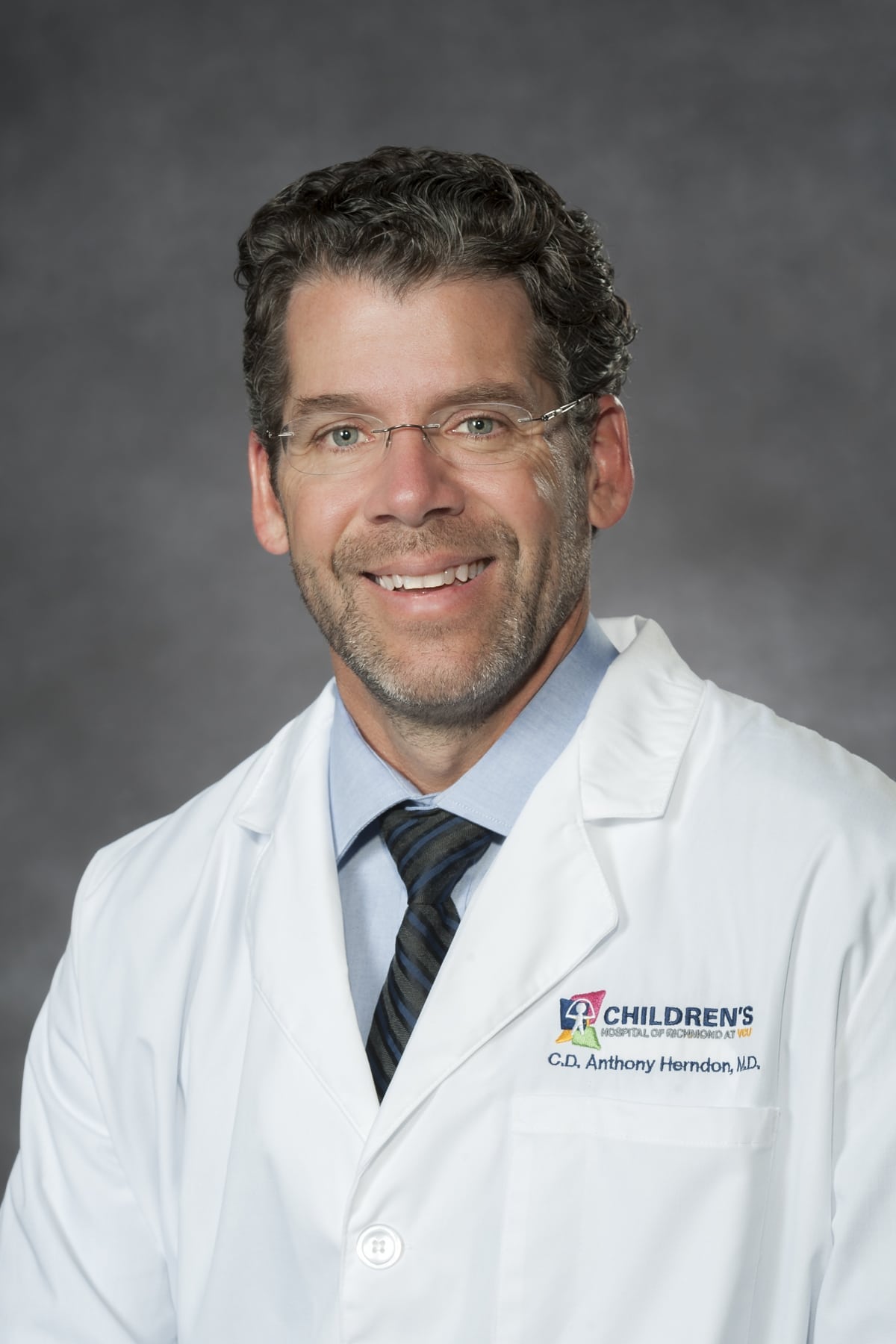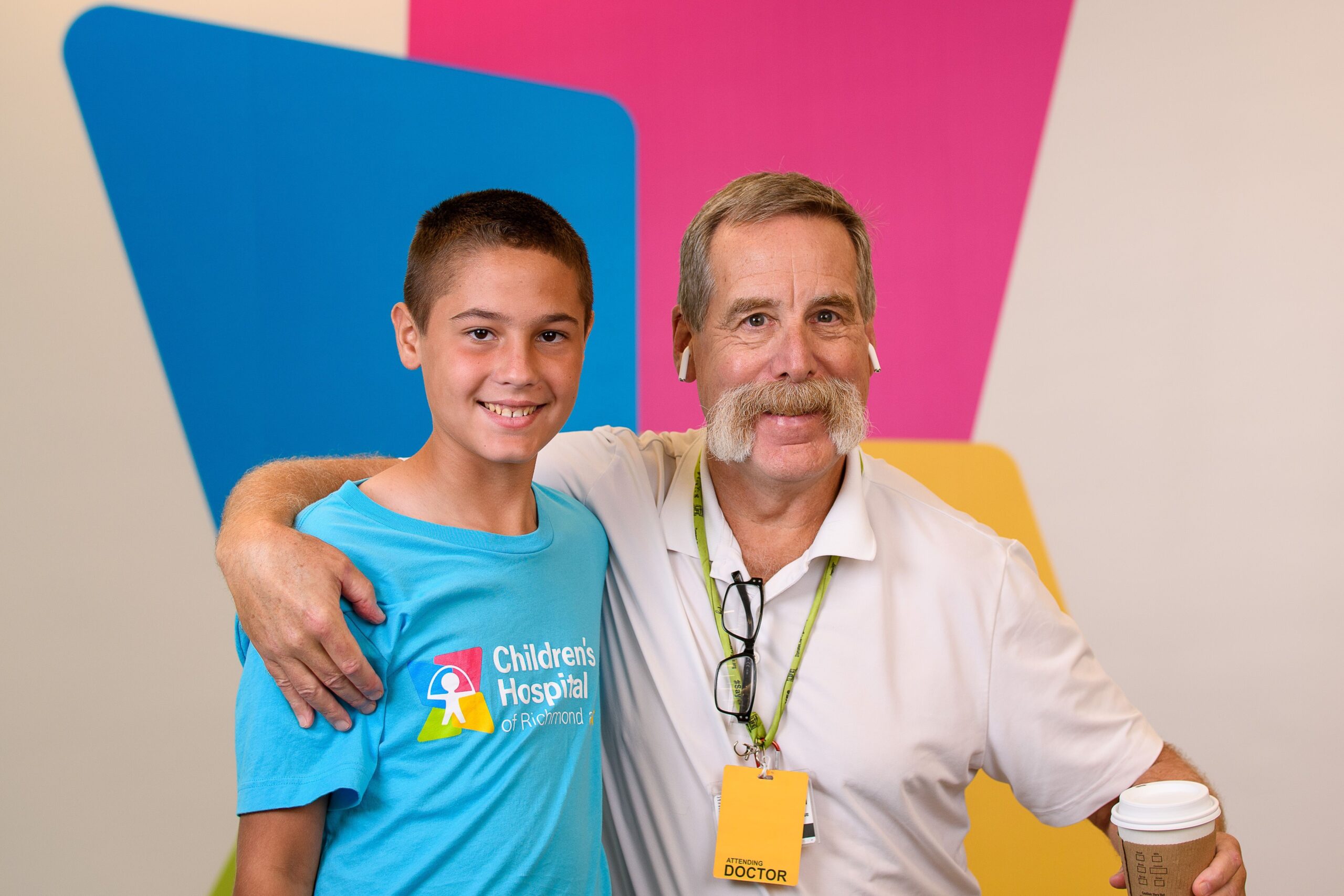Q&A with C.D. Anthony Herndon, MD, FAAP, FACS
In June 2016, C.D. Anthony Herndon, MD, FAAP, FACS, joined Children’s Hospital of Richmond at VCU (CHoR) as chief of pediatric urology and co-surgeon-in-chief. Later that year, CHoR acquired a community pediatric urology practice to support the hospital’s efforts to enhance services and optimize care. Children’s Hospital Foundation is supporting these efforts with a three-year, $2,931,673 pledge to establish the Children’s Hospital Foundation Endowed Chair in Pediatric Urology, recruit additional surgeons, hire a clinical research coordinator, and expand clinical programs. Dr. Herndon is the first physician to hold the endowed chair position.

What is pediatric urology, and why has there been an increase in demand for these services?
Pediatric urology is a hybrid of medicine and surgery and is a specialty that focuses on diseases of the male and female genitourinary tract, which include the bladder, kidneys and reproductive organs. We provide diagnostic and treatment options to our patients and collaborate with other CHoR specialists and clinics including nephrology, endocrinology, neurosurgery, orthopaedics and pediatric surgery to care for children with complex urological needs.
Over the last two years, the number of patients we’ve served and our surgical volume has more than doubled while our clinic visits have more than quadrupled. The reasons for these increases are related to
multiple factors including CHoR’s acquisition of a community practice in late 2016, my arrival in mid-2016, and the addition of new urology services including a robotics program, a prenatal urinary tract dilation program, and a voiding dysfunction program. These services and the skill of CHoR’s specialists are attracting patients from Fredericksburg, Roanoke, Hampton Roads and all areas in between. Pediatric urology is an underserved specialty with only seven pediatric urologists in Virginia. We are fortunate to have two at CHoR and are equally excited about the support for hiring two more, including one of my former urology residents, by the summer of 2019. Pediatric urology is heavily dependent on nurse practitioners, and we have three great ones who have more than 65 years of combined experience in pediatric urology. Patients are seen daily at the Children’s Pavilion and Stony Point locations and once a week in Fredericksburg.
How has CHoR’s urology program expanded clinical offerings over the last two years, and what are your future expansion plans?
Our robotics program, which provides minimally invasive robotic-assisted kidney and bladder surgery, has seen a 900 percent increase in the last two years and has become mainstream for obstructed kidney surgery in pediatric urology. This increase in volume is related to our prenatal urinary tract dilation program, which manages patients in one of our combined clinics with nephrology. Prenatal urinary tract dilation is a common condition that occurs in about 1 in 150 children. A majority of these patients will do well, but a significant portion are at increased risk of urologic disease. Patients followed in our Prenatal Urinary Tract Dilation program are subsequently enrolled into the Society for Fetal Urology multi-institutional registry that includes nine other medical centers throughout the country. CHoR is the primary site for this registry, which is the only one in the country that follows patients with prenatal kidney dilation. The research from this registry helps to identify patients who have an increased risk of UTI or the need for surgical intervention, which will occur in about 20 percent of these patients.
Voiding dysfunction, a condition that affects five to 10 percent of children, comprises a significant part of our practice and includes those patients with urinary incontinence and voiding symptoms, urinary tract infections and nighttime wetting. We are providing non-surgical options to treat patients with voiding dysfunction using behavioral therapy and will be adding biofeedback to this program in the near future. Last year, we saw over 1,500 patients with this condition.
Our goal is to be a top 20 program in the country and be seen as a referral center of excellence for pediatric urology in the Mid-Atlantic in the next five years. CHoR is well positioned and has all the essentials to achieve this goal including the new Children’s Pavilion, access to a large patient population, top notch colleagues in the key specialties of pediatric anesthesia and radiology, and resources to support our programmatic growth.
How will the grant from Children’s Hospital Foundation support the growth of CHoR’s urology program?
The finances of pediatric health care are complex and place significant constraint on the ability to grow programs and remain financially sound. The robotics, voiding dysfunction and prenatal urinary tract dilation programs are essential to better serve the Richmond community. Without the relationship with Children’s Hospital Foundation, these programs could not happen to the degree they are needed. The Department of Surgery and Division of Pediatric Urology are forever grateful for the Foundation’s commitment to better serve our pediatric community.







